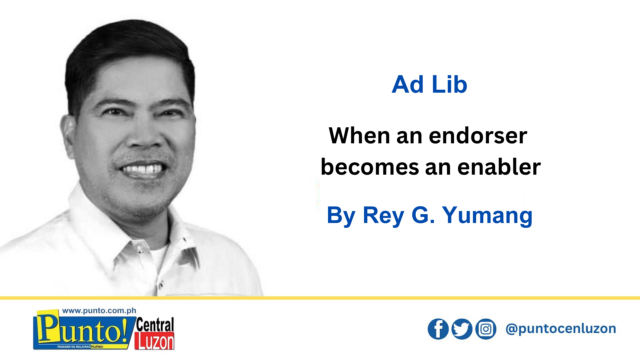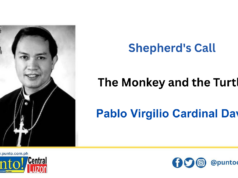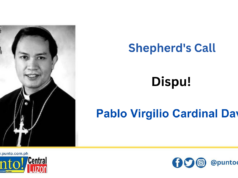FROM KINGMAKER to moral avenger.
This is the dramatic transformation the Iglesia ni Cristo (INC) now attempts to project after its three-day rally at the Quirino Grandstand. Philstar.com reports that the event drew as many as 650,000 participants, all clamoring for transparency and accountability in government.
Stirring? Yes. Righteous? Perhaps. But sincere? That’s where the story sours.
According to INC’s general evangelist Bienvenido Santiago Jr., the rally was not a call for regime change but for “bad leaders and corrupt officials” to step down. These are truly inspiring words; if only they weren’t wrapped in a level of selective indignation strong enough to trigger a nationwide hypocrisy alert.
Just for the record: this is the same religious institution that handed its highly-coveted bloc-vote endorsement to the Marcos–Duterte UniTeam in 2022. With that single endorsement, INC helped elect a tandem long marred by corruption issues, disinformation machinery, political vendettas, and historical revisionism. Their Senate slate included figures facing credible questions on plunder, misgovernance, and public fund misuse. Still, the INC stood firmly behind them, declaring them righteous enough for its followers.
Now, suddenly, the group wishes to play the role of the country’s moral compass. How convenient!
But beyond the hypocrisy lies something even more dangerous: the deep entanglement of INC endorsements in the country’s machinery of patronage politics. An INC endorsement is not merely a support but a political anointing. To be endorsed is to be declared “on the good side,” a beneficiary of a bloc vote estimated at 1.4 to 1.8 million votes nationwide. And once the candidate wins, the relationship blossoms into an unwritten but very real “utang na loob.”
And let us be honest here. This debt is not repaid with Bible verses or prayers but with appointments, exemptions, favors, access and influence. All these are taken from public institutions and handed to a private religious bloc. This is not advocacy but a pipeline for corruption and preferential governance.
And where, one might ask, was this same righteous fury during the Trillion Peso March on September 21, when thousands demanded accountability for the same flood-control corruption scandal the INC now cites? The INC was not only silent; it was invisible.
Where was its thunderous indignation when VP Sara Duterte burned through ₱125 million in confidential funds in just 11 days (later “corrected” to 19), with 405 out of 677 signatures on liquidation documents bearing names that the PSA says don’t event exist? No single statement. No word. Not even a polite cough.
But now that political winds have shifted, alliances have cracked, and public outrage has reached boiling point, corruption suddenly matters to the INC. If Philippine politics were a teleserye, this would be the unexpected plot twist that makes viewers laugh, cry, and roll their eyes all at once.
If INC truly seeks to cleanse the nation of corruption, it must first confront its own complicity, its selective morality, its patronage-driven endorsements, and its role in elevating into power the very officials it now condemns.
Accountability requires more than a three-day spectacle in Rizal Park. It requires consistency, courage, and credibility. Until the INC confronts its past, its crusade will remain what it currently is: loud, dramatic, and painfully hollow.
So, what happens when an endorser forgets its responsibility to choose wisely? It does not merely support corruption; it enables it.





